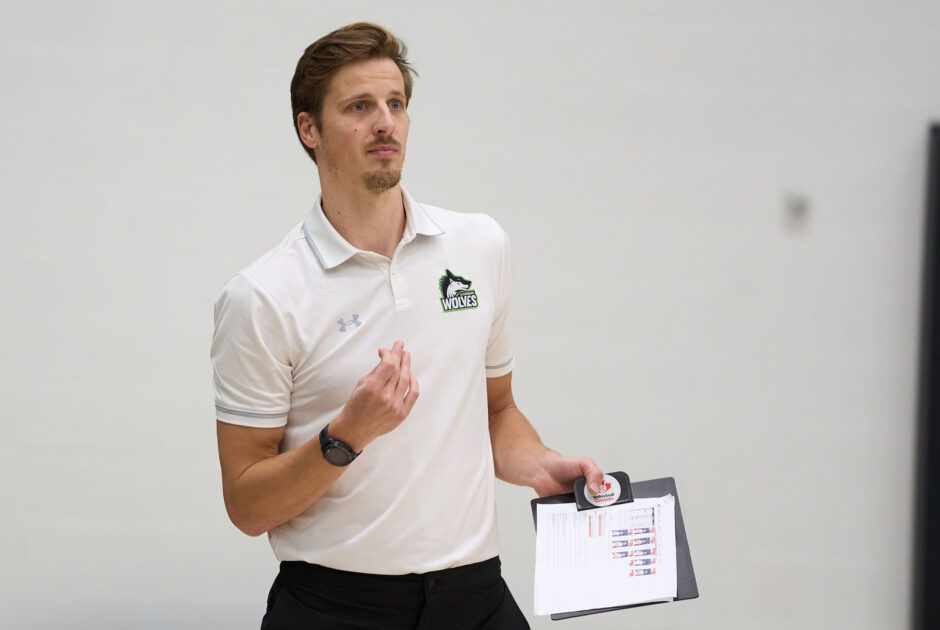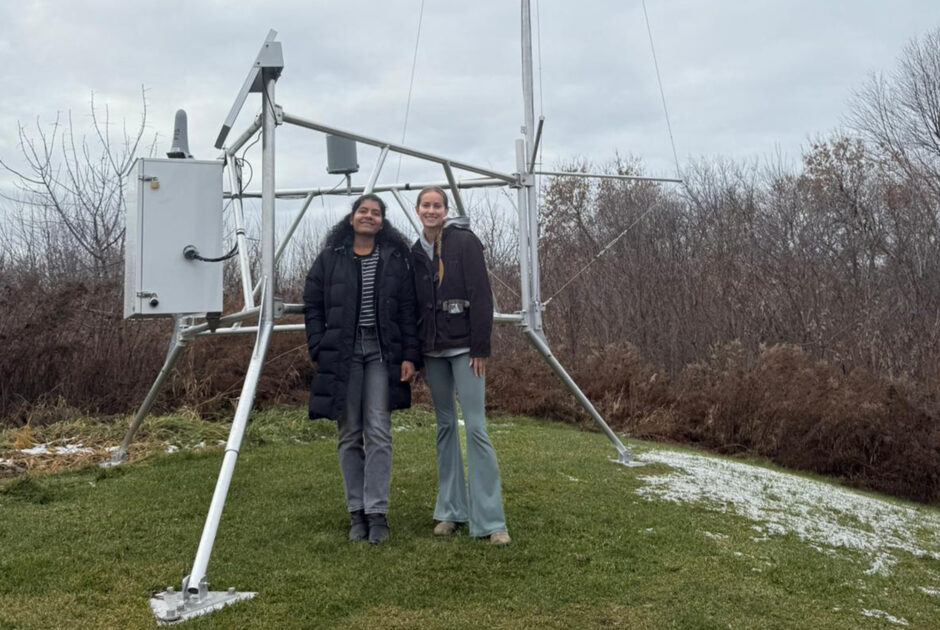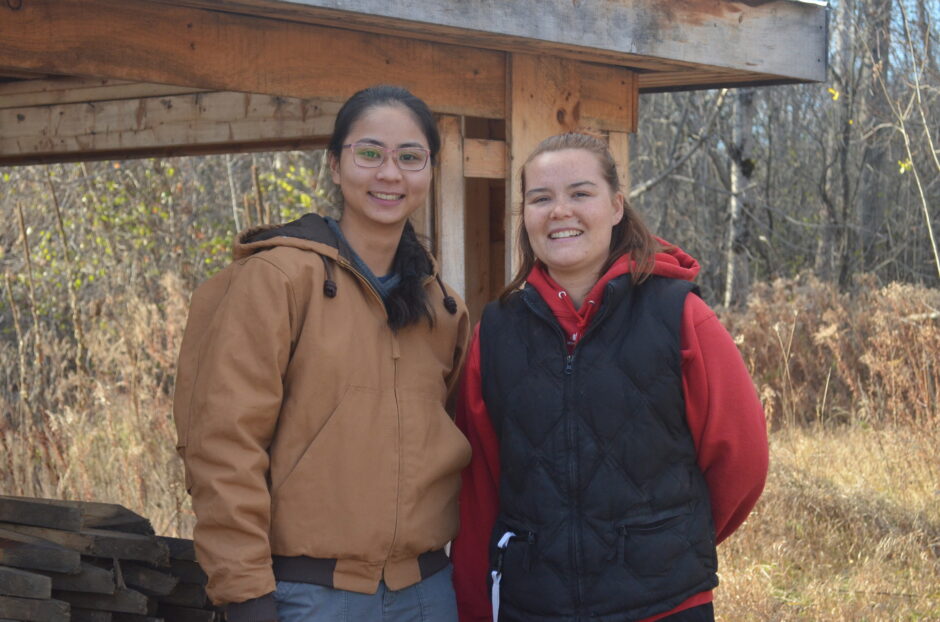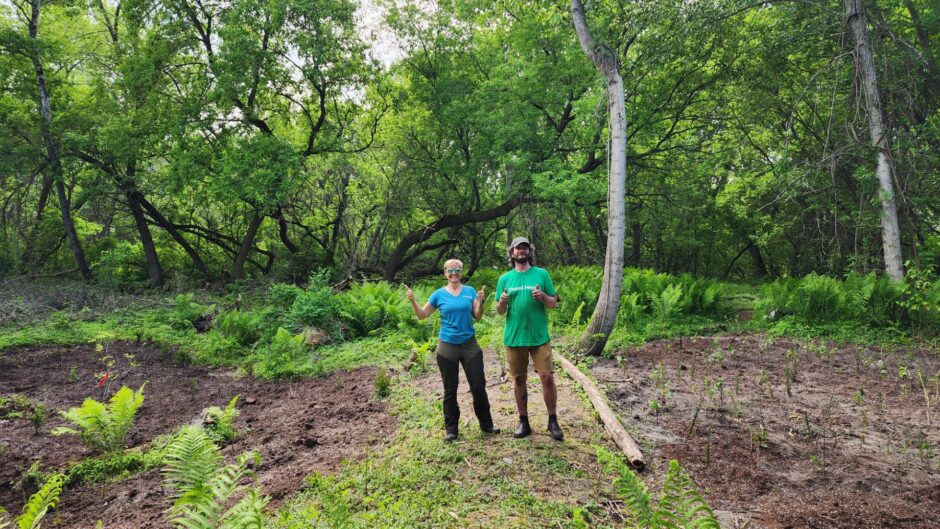Old helicopter shines new light in aircraft maintenance program
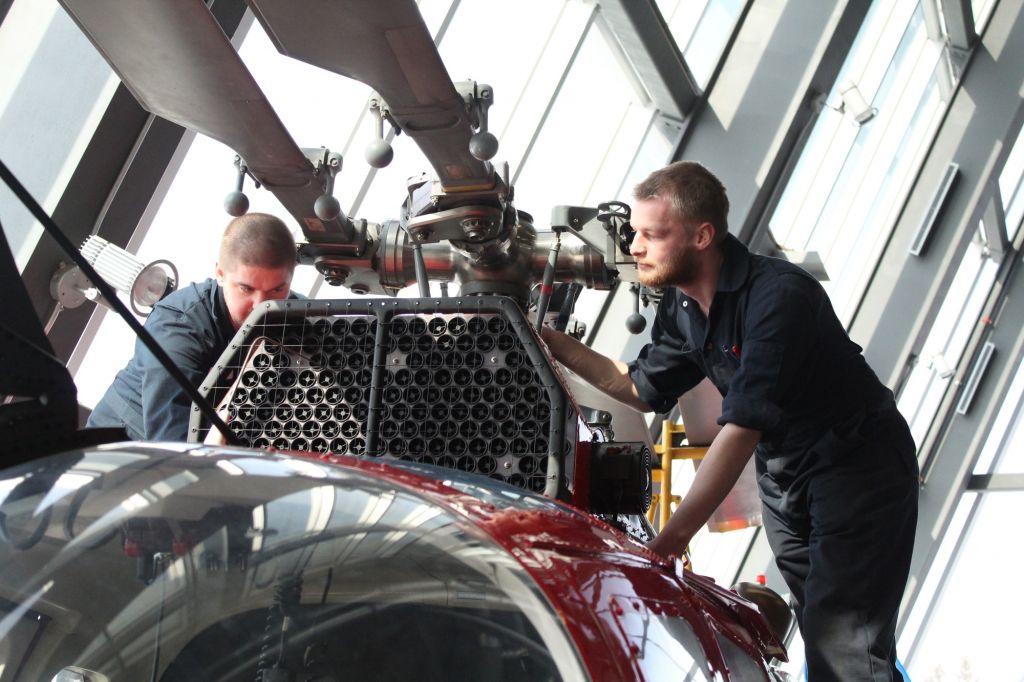
Algonquin aircraft maintenance students Nicholas Konynenberg and Zac Rennick carefully move a board to the right side of the helicopter. They hold it against the body of the helicopter, then begin turning screws into the holes that connect the board to the body.
They examine the helicopter from different angles to make sure that the component is firmly attached to the body. Every small detail matters to them.
Konynenberg and Rennick were training on a Messerschmitt-Bölkow-Blohm BO 105 helicopter, which has served in the Canadian Coast Guard for over 30 years.
On March 6, the helicopter was officially donated to the aircraft maintenance program by the coast guard.
“A lot of people’s lives are depending on it,” said Konynenberg when speaking of how he felt while doing training with the helicopter, “especially for helicopters like this. Many of these helicopters, they work on forest fires, or search and rescue people, so there’s a lot on our shoulders.”
Faculty members in the program, such as Prof. Mark Ward, were glad to see the aircraft come in.
“It’s a fantastic donation,” said Ward. “It’s an older helicopter, but completely modern. This is exactly what we need for the program.”
According to Prof. Serge Cote, coordinator of the aircraft maintenance program, as part of the training aid from the Canadian government, the donation is significant, for the program relies solely on donations from outside the college.
“Without proper training aid, I will not be able to train my students,” said Cote. “This helicopter was instrumental for the college to be able to complete all the practical activities that are required in the program.”
The importance of this donation is further explained by Ottawa West-Nepean MP Anita Vandenbeld, who attended the donation ceremony on behalf of the Canadian Coast Guard.
“Without that helicopter, students in the aircraft maintenance program would have to go to Toronto to do their second year of the program,” said Vandenbeld.
The BO 105 helicopter was one of the surplus helicopters of the coast guard. After receiving new aircraft, the federal agency decided to donate them to different colleges.
“When they can’t sell their assets,” said Cote, “they will give them to colleges, not only us, but all across Canada.”
The key motivation for the coast guard to make donations is that it currently needs to expand its group of aircraft technicians. According to Cote, the government is doing itself a service by providing training aid for the program so they can recruit more technicians in the future.
“It’s going to help the coast guard tomorrow,” said Marc Gervasi from the Canadian Coast Guard. “There’s always a possibility down the line that some of these students who had their hands on one of our BO 105s will actually be working for the Canadian Coast Guard on our newer assets.”
The coast guard is not the only donor of aircraft. Major aviation companies also give away their old assets to the program. A reciprocal practice, the companies benefit from making donations to the college in the way that they are able to recruit technicians trained by the program, adding new blood to the industry. It’s a full circle.
However, the program does not get training aircraft by chance. Cote has to build up connections with various companies to make sure the program can get the aircraft when it needs them. He has acquired a business jet for the program from Skyservice, an airline based in the Greater Toronto Area.
“We have a lot of relationships with the companies,” said Cote. “I deal with them. When they have something in surplus and they’re not getting much money from it, they make a donation. Good for them, good for us.”
As a result of such partnerships, students gain access to more job opportunities after they graduate.
“In Canada, we have over 900 companies where they can work at,” said Cote. “Fifty of those are the big guys, like Air Canada and Air Transat.”





